In her classic Women Who Run with the Wolves, Clarissa Pinkola Estes tells the tale of the misplaced zygote. This magical fairy child, brimming with joy and light, was so excited to be born that she hopped out of the basket early! As a result she ended up with parents and a birth family who could never fully appreciate her.
I’ve long identified as one of these misplaced zygotes. My parents, as the cliché goes, did the best they could with what they had. Forged from the Croatian Catholic mold of the rust belt, my father (who worked on the line at GM’s Lordstown plant and later became an Evangelical) and mother (a teacher turned school administrator, devoted mostly to the Gospel of what people think) did not know what to make of me. By kindergarten, I was crying profusely when I saw the bad guys paint Big Bird blue in Follow That Bird, or whenever Judy Garland belted out “Over the Rainbow” during the thousands of times I took comfort in The Wizard of Oz. I was that kid who read encyclopedias just for fun and journeyed to fantastical places in my own imagination. I already knew by eleven that I liked both boys and girls, and that Christianity did not have all the answers—which is why I am so grateful that three decades later, the God of my understanding reunited me with the man who was intended to raise my fairy magic all along, the man I call Baba, Dharl Chintan.
Baba is a term of respect and endearment used in India for any older man and depending on the context it can mean father. Up until the lockdown caused by the COVID-19 pandemic, on any Thursday night when I was not on the road for work, you would find Baba and I co-teaching a meditation group near our homes. And then during lockdown, Baba impressed me even further by learning the intricacies of Zoom so that we could continue our group online. Baba has been “out” as a yogi here in my northeast Ohio home almost as long as he’s been out as a gay man, which makes him a legend in my book. Getting to tag-team teach with him on the Eastern traditions that we love so much is one of the great privileges of my life.
Baba, now in his late seventies, dresses like any other grandfatherly type in our area—khakis, button-down shirt and those zip-up windbreakers. I’ve only known him with a head of white hair, yet his complexion and freckles that pop in the summer reveal a mischievous redhead look when he was younger. He’s the type of guy I can go to lunch with and talk about the precepts of Quaker philosophy in one breath, and kinky sex in the next. His smile always makes me smile, and his hands are always cold. I know this because sometimes when I am leading our part of the meditation, the sound of his gentle snoring lets me know he’s fallen asleep, so I gently squeeze his hand to wake him up. And touching him is nothing less than getting to hold the hand of my personal sage.
Baba is my soul father in every sense of the word. Baba and his husband Mike have been together almost 58 years. They were “out” here, in northeast Ohio, when I couldn’t have imagined it was particularly safe to be out anywhere in the country. About seven years ago, shortly after deciding to come out as bisexual in my public as well as in my personal life, I started attending a 12-step fellowship meeting specifically for LGBTQIA+ folks. At twelve years sober I was feeling my recovery stagnate a bit and I knew I needed both a new meeting and a new sponsor. A common saying in recovery is to pick a sponsor who has what you want. As soon as I met Baba and heard a little of his story—and his willingness to be authentic for so long in a place like Youngstown, Ohio—I said, “THAT!”
I. Want. That.
I want someone with that level of courage to mentor me through the next passage of my life. I want to learn everything this man is willing to teach me.
The first time I went to his house to hang out, I had full intentions of asking him to be my sponsor. In some 12-step cultures it can still be taboo for a man to sponsor a woman, although there’s some flexibility in queer contexts. I didn’t care anyway—I was a rebel who needed another rebel in my life. I carried a great deal of shame with me into that first chat with Baba. My international reputation as a trauma and addiction specialist was already growing, yet my personal life was in shambles—again. My second marriage was beginning to traumatically crumble and while I was becoming even more comfortable in my skin as a queer person who advocated for other queer people, so many people in my life just didn’t get it.
“Why do you have to make a big deal about coming out?,” I was asked repeatedly by friends and family. “You’re married to a man.”
“Because I have to,” I replied. “I just have to.”
I didn’t have to explain that to Baba. He got it. In that first of many visits with him, I was more honest about my life, my feelings, and my struggles than I had ever been with any of my other sponsors or therapists combined. It’s like being in the presence of that authentic soul just brought it all out of me and from that first, “Oh Jamie, I love you,” my life has never been the same.
Before long, that marriage I had no business being in ended in the most dramatic of fashions, and for the second time in seven years, I found myself sitting in the 2nd floor lobby of Trumbull County Family Court. “Yup, this is what my mother always wanted,” I thought to myself that day. “A twice-divorced daughter.” I beat myself up, wondering how someone so “smart” and so spirited keeps hopping out of the basket and into the arms of men who will never get her?
With that much shame burning up inside of me, the only two people I could bear to have with me in court that day were Baba and Mike. My ex-husband ended up not showing for court, which could have been a serious impediment to the divorce being granted as quickly as possible. The judge did everything in her power procedurally to make sure that she could still grant me the divorce. I was not prepared for the questions I was being asked. How hard it was to believe in that moment that people in my field view me as a put together professional, even using words like intimidating to describe me. In teaching courses on a global stage, one of my true talents is answering tough questions on the fly. I was none of those things in court. First, I cried, then I wailed, and then I checked out into a dissociative haze, overwhelmed by it all.
“Why can’t you just answer the questions,” she asked.
I wanted to explain how abuse can cause this in a person—shuts us off so that nothing makes sense anymore. But I just froze.
And Baba saved the day.
Not only did looking at him give me a sufficient level of grounding to at least scratch out some semblance of answer to those very difficult questions, he had also agreed to be my witness, testifying to my incompatibility with my ex-husband.
Baba, a retired clinical social worker, spoke to the problems he saw in my dynamic with my ex-husband and helped to clarify for the judge why I was shutting down and why I had difficulty answering so many of these questions. In truth, the shame spiral made me so embarrassed to address her queries about my business, for how can a respected clinical author who helps so many people be brought to this heap of mess by her own personal choices?
When Baba spoke, with the authority of the respected minister that he is, about my stellar reputation in the community and in my field, my tears continued to flow. At some point they became tears of joy, as I thought. “How can I be so blessed to have this kind of love in my life?” When he began to testify to my moral character, another crying jag started. It was similar to what I did as a little girl watching Big Bird get kidnapped. But the family into which I was born could never understand. Baba did.
Somewhere in the middle of that haze the judge banged her gavel and granted me the divorce. The steady stream of dissociated tears turned into an uncontrollable maelstrom. I couldn’t believe it was over, I was free, my reaction a revelation of just how much I’d been holding in throughout that marriage.
Baba knew. He knew and he didn’t have to say a word. He escorted me out to the waiting area again and let me cry it out as the 38-year-old baby he held in his arms; not once afraid of or intimidated by my tears, my emotions, or my humanity like so many before him were. Those closest to me, especially as I grew up, often judged my tears as weakness or weirdness—more evidence that I didn’t belong or was born into the wrong time or place. That day was the most corrective experience in my journey to help me heal the wounds around human relationships. I finally made it over the rainbow to that land I had heard of, once in a lullaby. For I was accepted exactly as I was, in all of my glorious mess.
Baba and Mike took me out for sushi and processing after court, and that’s when I officially asked if I could call them my dads. For even though Baba is my sponsor and personal sage, Mike’s role in my life is just as important. The two of them represent everything I was raised to despise—a man loving another man, the homosexual curse on America, the scourge of the gay lifestyle and all of that conservative nonsense.
Whoever spouts this stuff off has obviously never experienced this kind of love: To be loved so unconditionally and validated so fully. As author Brené Brown teaches, shame cannot possibly exist anymore in these conditions. Baba surely has had to work through layers of shame in his own healing, and now he is sharing the gift of how to cut it down by the roots with me. I am so proud to have adopted my gay dads. They are the centerpiece in the cadre of weirdos that comprise my family of choice.
That day over sushi we processed the shame around feeling like my behavior in court reflected badly on my professional reputation.
“Stop it,” Baba said, “You’ll be in real trouble if you ever stop forgetting that you are human, that you are vulnerable. And that vulnerability is your greatest strength.”
The misplaced zygote, in that moment, realized she was no longer misplaced. She was a fairy princess who found her way home to her red-headed fairy queen.
Baba. Pa. Dad.

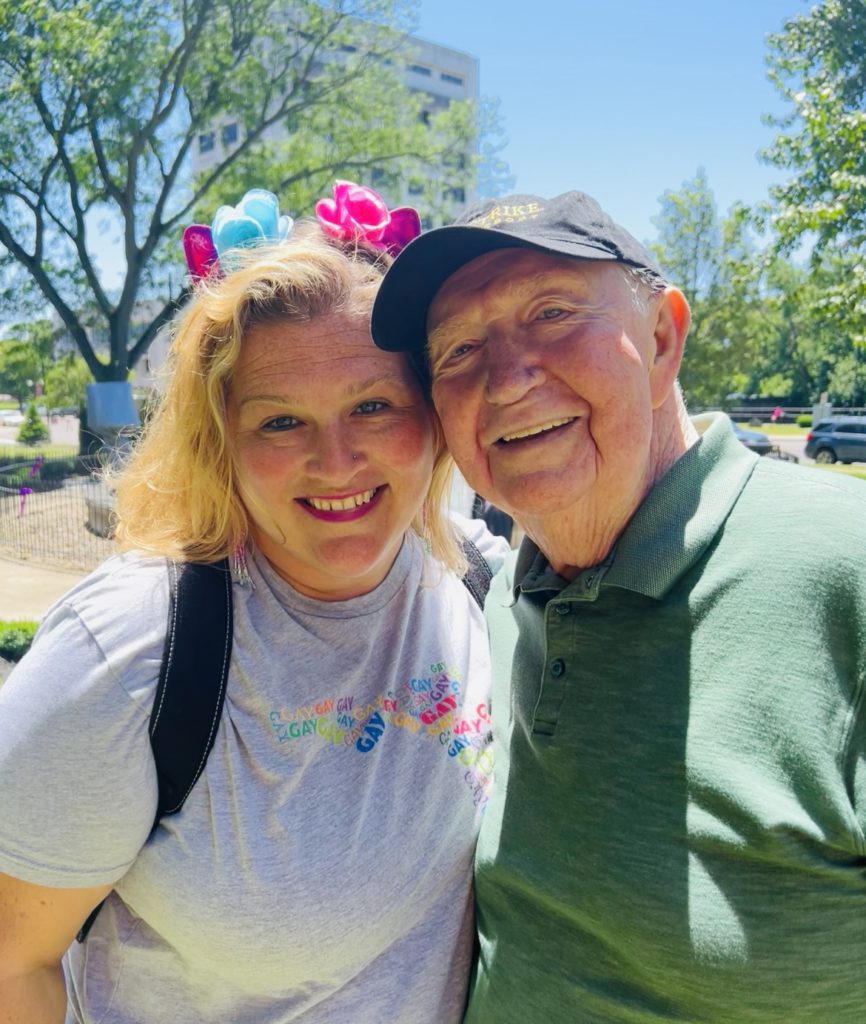
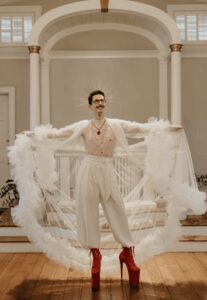
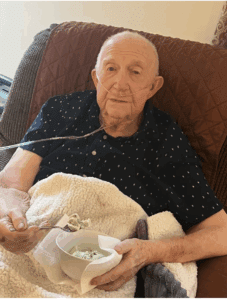
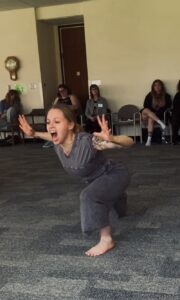
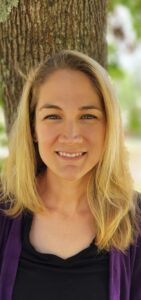
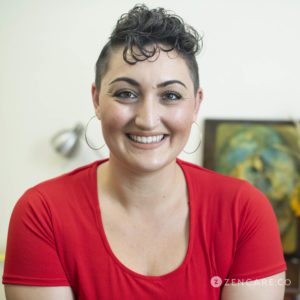

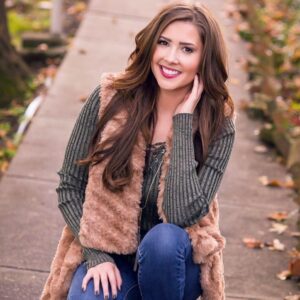
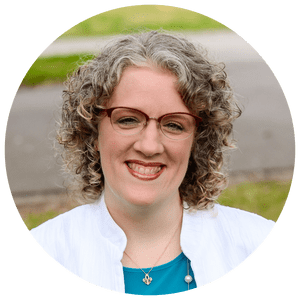
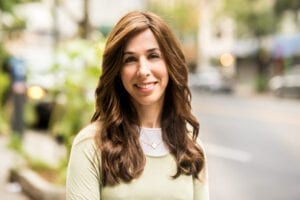

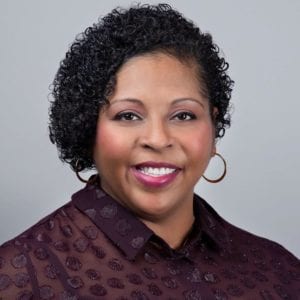
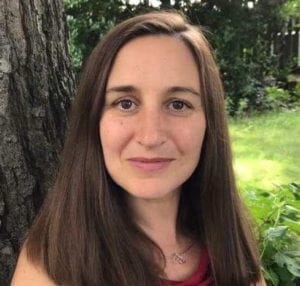

3 Responses
I Truly Love You.
Jamie, this was such a delicious read for an old man.
A beautiful testament to love. It’s all there is. Thank you, Jamie, Baba and Mike for all of it.